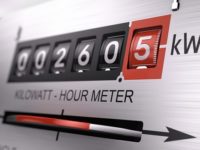This summer will be hot and wet throughout Australia, according to the Bureau of Meteorology’s new long-range forecast. With 62 per cent of small businesses already struggling with high power bills, according to recent research by Energy Consumers Australia (ECA), how can they keep energy costs down this year?
First and foremost, make sure you conduct an audit of your energy plan and expenses, says Liz Stephens, General Manager of Public Affairs and Strategy at ECA.
“Contact your retailer and make sure you are on the right plan for your business,” says Stephens. “Check: ‘How am I being charged for the energy I used? Am I on the best rates and plan for my needs? Do you have any additional offers for small businesses?’”
Stephens also recommends getting an energy audit done by a professional. An auditor can look at your previous bills, assess your equipment and premises, and consider your business needs. You can find an auditor through Government websites, like www.sustainability.vic.gov.au.
The Federal Government also has information about grants and rebates for small businesses here.
Practical switch-ups
Make sure that any light bulbs and appliances you use in your business are optimised for energy efficiency. Lighting alone can account for 10-25 per cent of your bill, says Stephens, so it’s more than worth it to replace inefficient bulbs with, say LEDs.
AC can be a game-changer for you and your customers, but it can also significantly impact your bill. ECA recommends setting your temperature at 18-20 degrees in winter and 24-26 degrees in summer.
You might also like to invest in motion detectors and timers or more energy-efficient appliances, if you’ve got some budget for upgrades.
If you’re after information more specifically related to your sector, the Department of Climate Change, Energy, the Environment and Water has a website for business energy management.
Outages
Hot and rainy weather can lead to power and network outages. With so many small businesses relying on internet or cellular connections, make sure you are prepared for the event of an outage.
The Department of Infrastructure recommends making sure your important information is backed up online or physically, considering a point of sale with a SIM card and Wi-Fi connectivity, and knowing where your closest ATM is located. Additionally, diversify your network providers between devices; this way, if one network has an outage, you are still covered by another.
The Department of Infrastructure has more information about outages for businesses on its website.















